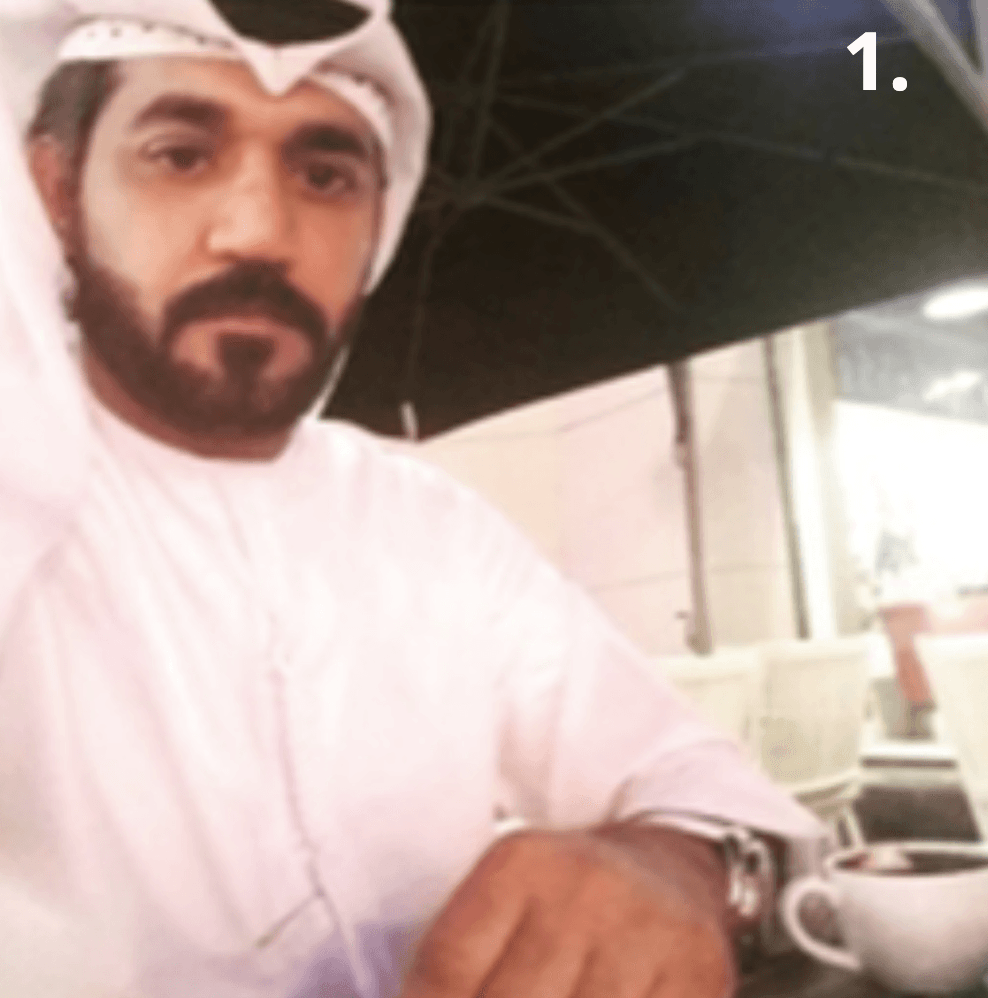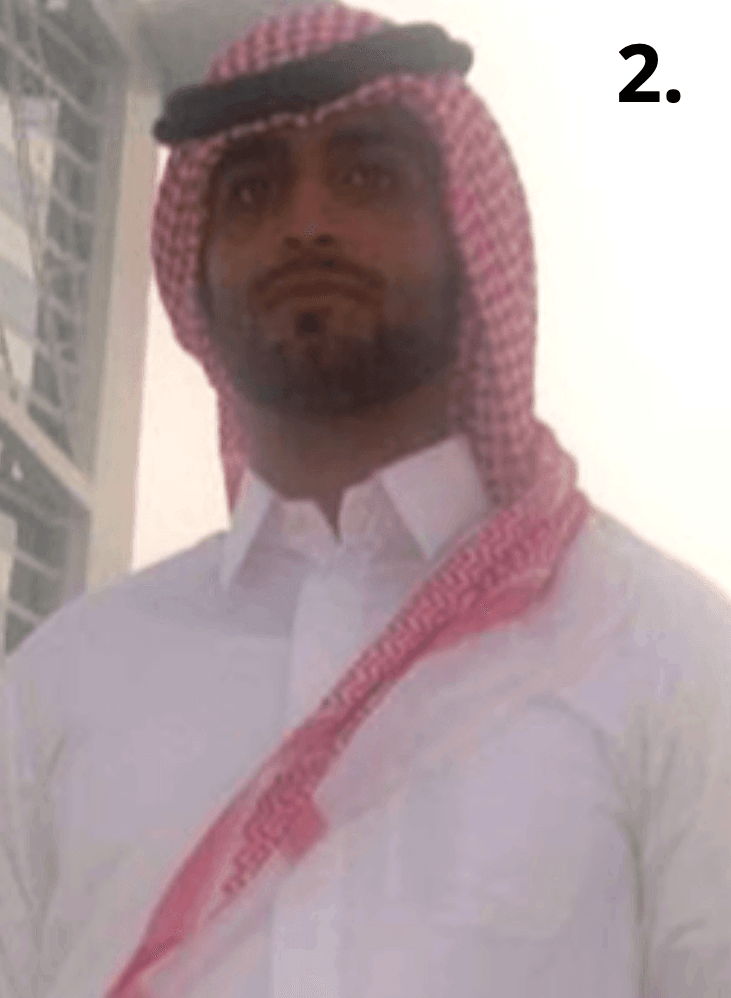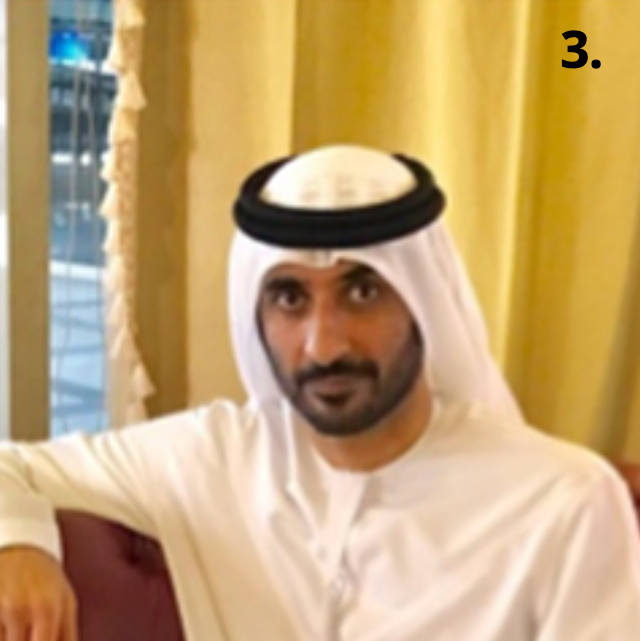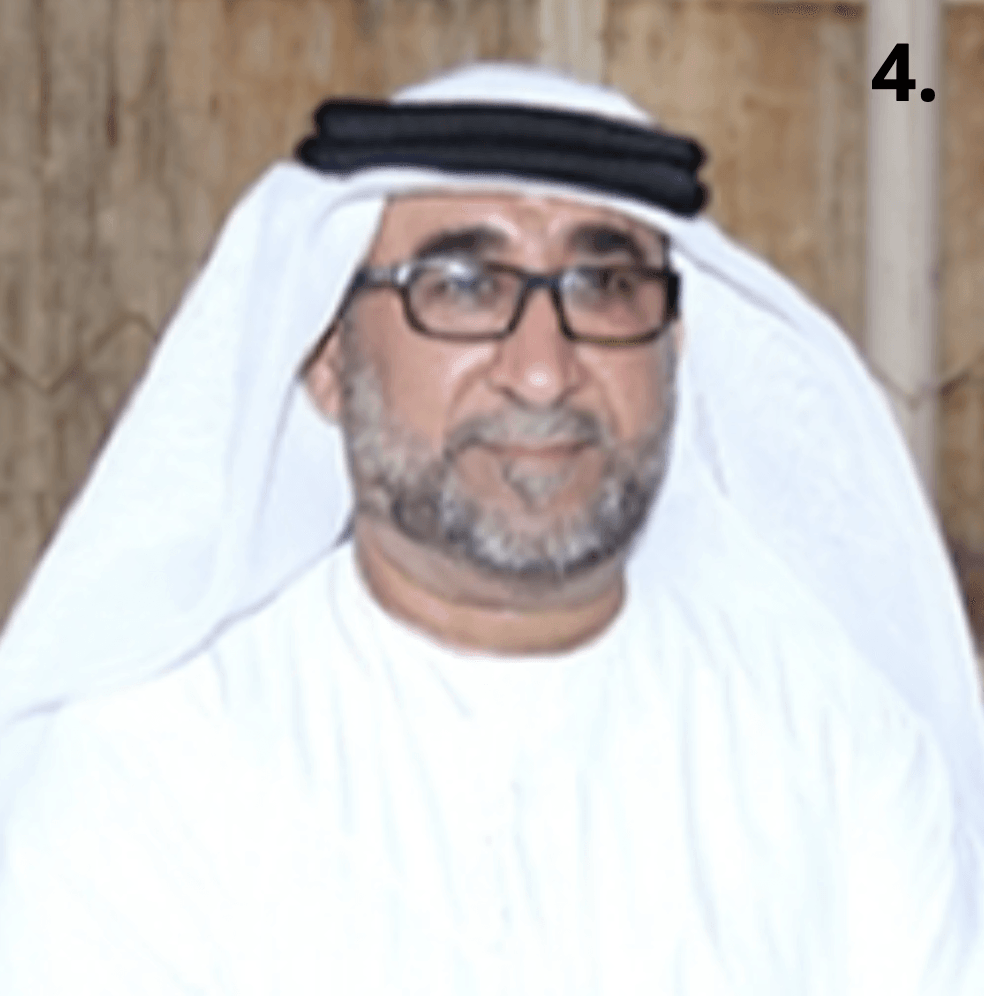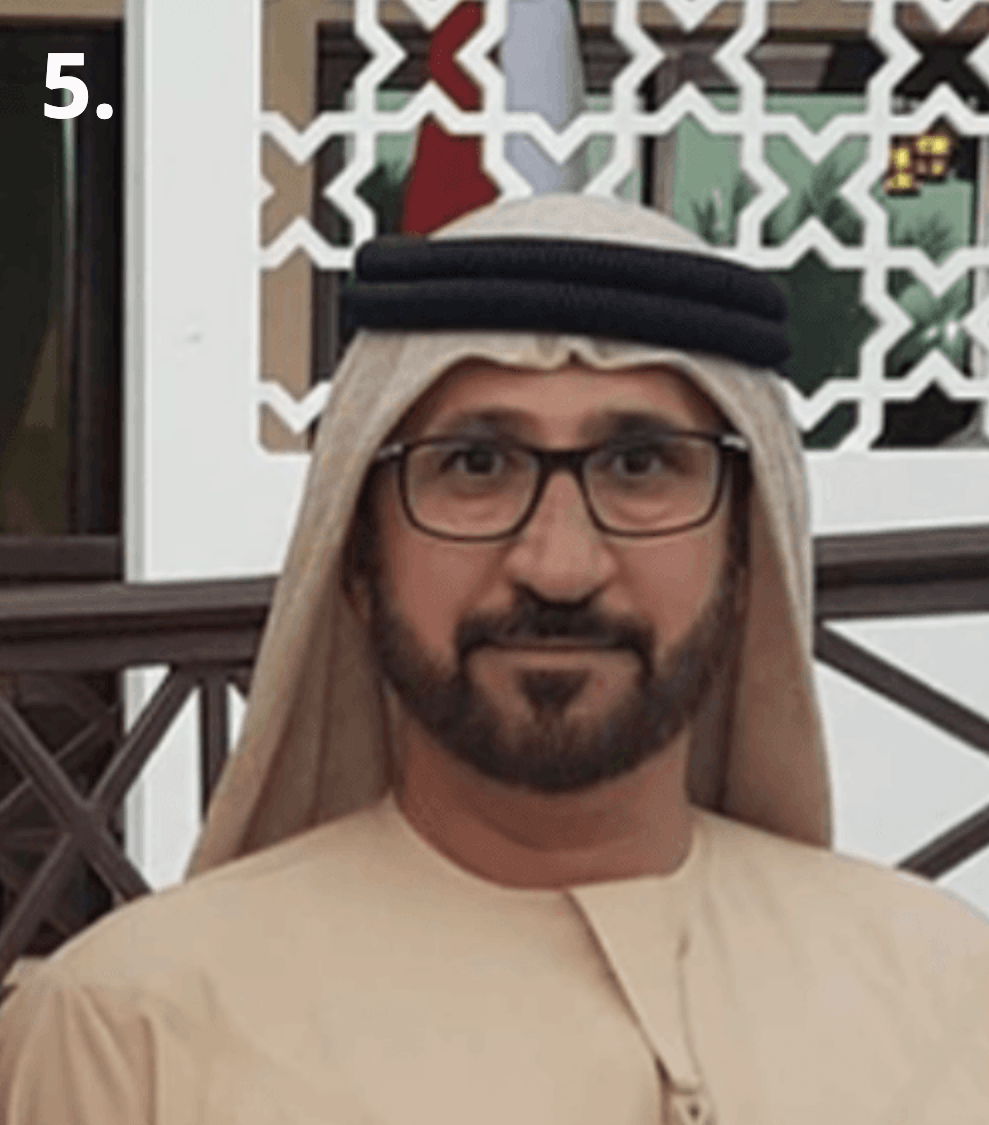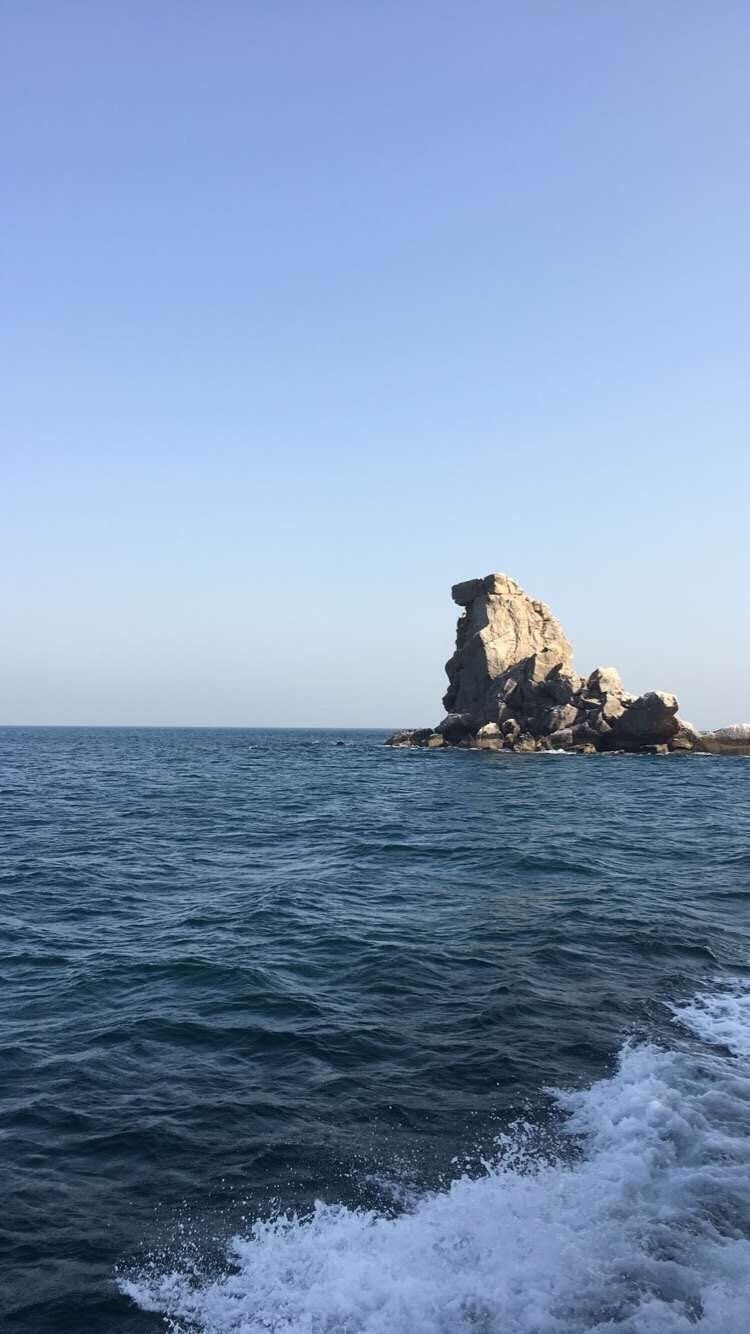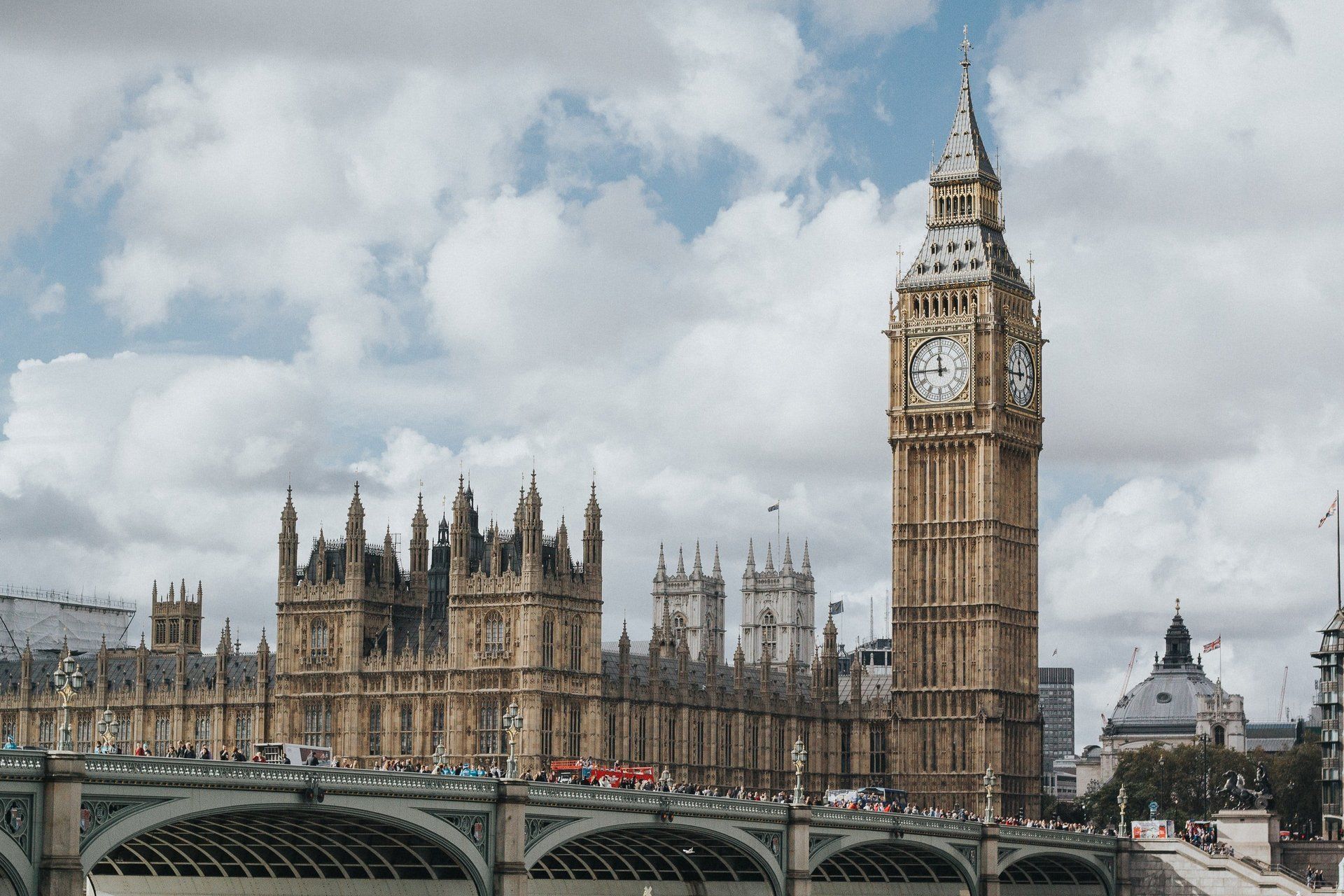"We are hoping to raise the profile of the Shuhuh6 within the British Parliament, and request that you download the draft email text HERE and send to your MP.
The download includes how to simply confirm your MP's details along with their email address."
LATEST NEWS

نحييكم جميعا ونخص الشرفاء الأحرار منكم ونجل أيما إجلالا لمواقفكم المشرفة والمعهودة دوما بكم ونعزي الشرذمة المتسلقة على أكتاف الآخرين ضعاف النفوس فاقدي ثبات المبادئ نذكركم بالدكتاتوريات المستبدة التي كانت تجمع في ظلها من يقتات على حساب أهله وأقاربه ومع انهيار ذلك المستبد والذي لم يدر في خلدهم سقوطه حتى تهاوى ليعلن الحق الرباني مشيئته الراسخة في قلوب المؤمنين أهلنا في رؤوس الجبال لا يغرنكم مظهر الأقوال المخادعه التي ينتهجها عدوكم النظام العماني والذي يعيش شعبه في الداخل وفي مراكز القوة الاقتصادية والنفوذ السلطوي بين مطاردا ومطلوب ومعتقل في غياهب السجون السيئة السمعه دوليا والفارين بكرامتهم الى خارج مستنقع السلطة المستبدة أهلنا في رؤوس الجبال إن مخطط عدوكم واسع وخياله المتعطش للبطش والسيطرة والانتقام ليدعوكم اليوم إلى وقفة شرف لمراجعة النفس ونخص به من سولت لهم أنفسهم بخدمة مخططات العدو بقصد او بغير قصد ونذكرك بشرف أجدادك الشجعان الذين تركوا بصماتهم خالدة أبد الدهر وإن لم يكن جدك كذلك فيكفيك أن عشت على هذه الأرض بقبول من حكامها في خصب وبخا ودبا لتعيش كإنسان إن عدوكم كل من مد يده الى هذه العصابة التي تسرق ثرواتكم وتهدم آثاركم وتصادر وتبيع ممتلكاتكم ببيع جبري لم يعرفه شرفاء العرب ولا تقبله الشريعة الاسلاميةالسمحاء وسيجني سخط هذه الفعلة المشؤومة كل من شارك او كان جزء منها ببيع أو شراء أو ترويج أو توضيح أو نشر أهلنا في رؤوس الجبال لديكم تجربه عميقة في فهم عدوكم وكشف مخططاته وزيف إدعاءاته ووعوده الضالة الكاذبة ولا يفي إلا بما يخدم مصلحته فلا تكونوا حطبا يحرقكم إرضاء للشر المتوقد في صدر هذا النظام المجرم نسأل الله دوام العفو والعافية وأن تعيدوا ترتيب صفوفكم من أجل رسم مستقبل مشرق ينعم بالخير والسلام والرخاء لتعيش رؤوس الجبال وعلمها عاليا خفاقا
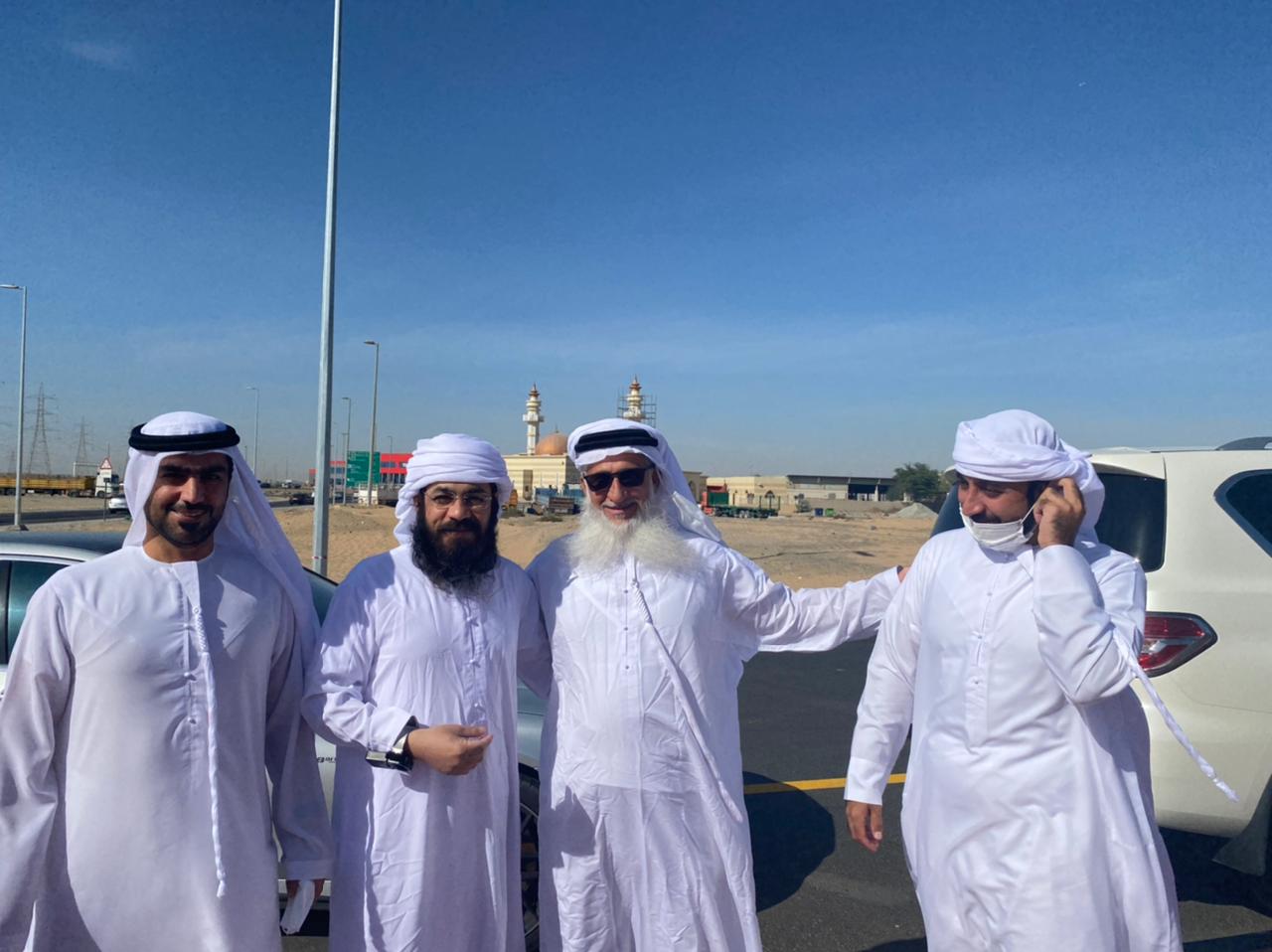
The remaining two members of the Shuhuh 6 who are both Emirati nationals, were pardoned and released on April 17 th 2021. Aref Sultan Ahmed Al-Shahi and Rashed Saeed Al-Salhadi al Shahi photographed here ( 2nd and 3 rd from left respectively ) just across the border from Oman into Abu Dhabi near Al Ain.
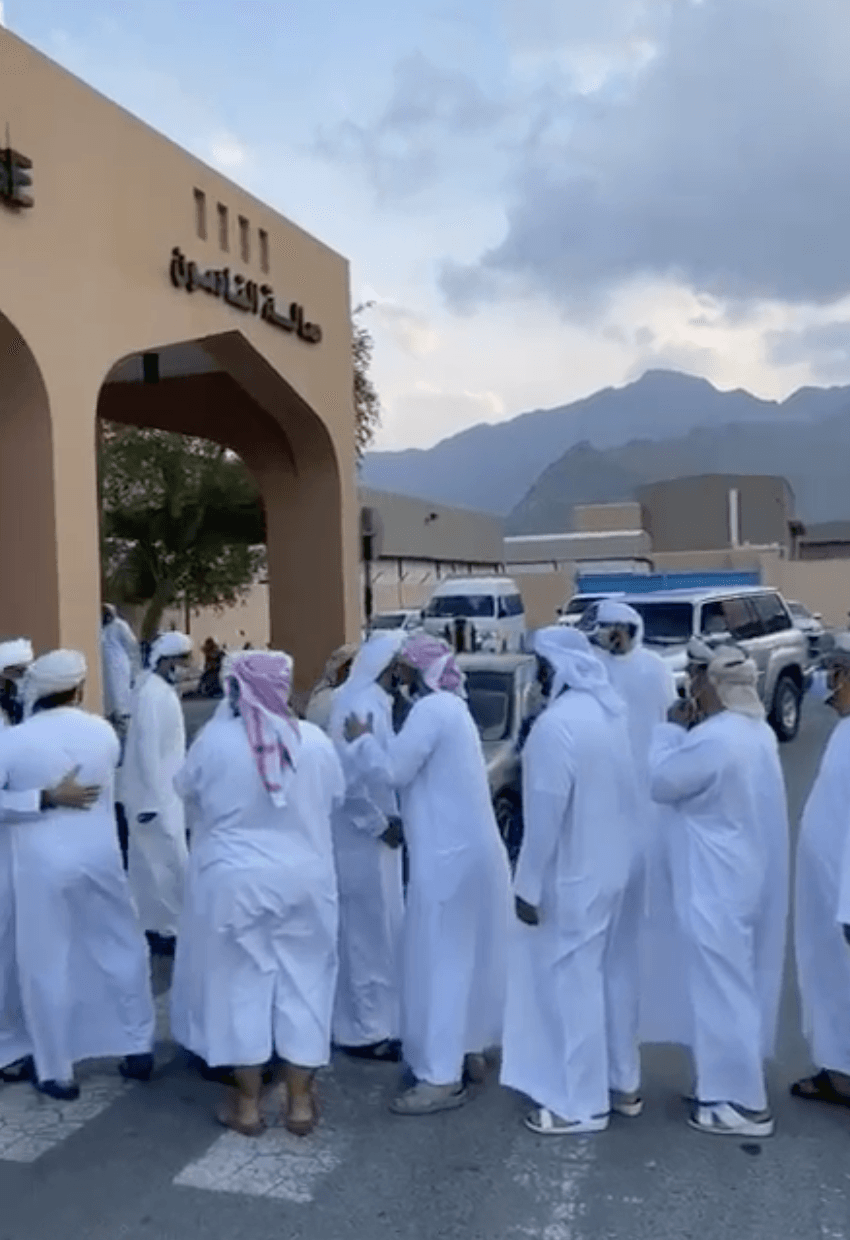
We are pleased to confirm that the 4 Omani members of "The Shuhuh 6" were pardoned and released on 19th November 2020 having being flown from Muscat to Khasab Airport, Musandam. We will continue to fight for the release of the remaining 2 who are UAE passport holders, and for the freedom and human rights of all of the indigenous peoples of Musandam.
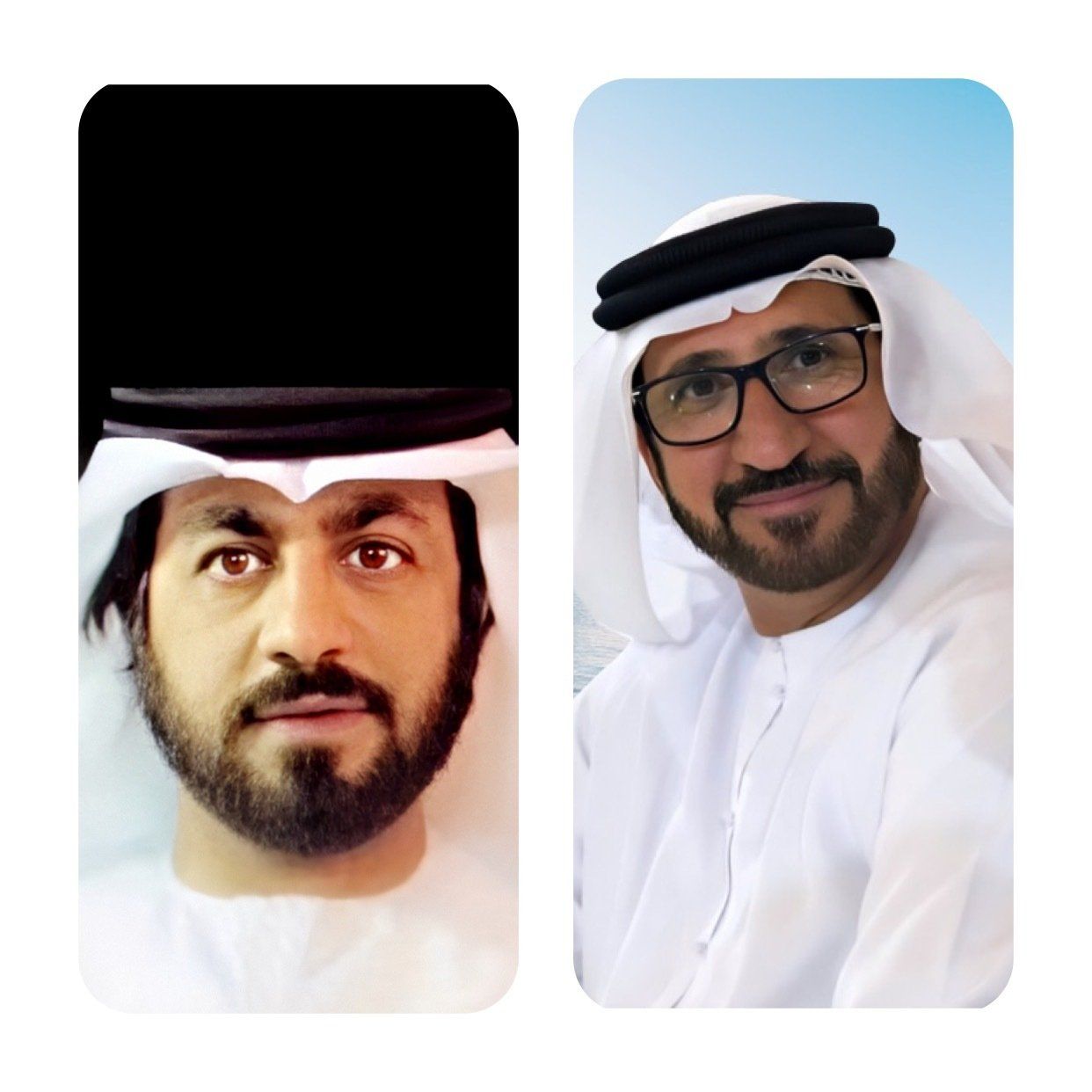
يعيش الإنسان على هذه الأرض ساعيا الى الخير ومنتصرا للحق ، تلك هي الفطرة التي فطر الله عليها البشر الأسوياء الذين خلقهم الله وهم في كامل عقلهم،، ويشاء رب العالين أن يخلق ما دون ذلك ليدرك البشر ببصيرتهم التي أكرم الله بها بعض خلقه بالفرق الشاسع بين الحق والباطل وبين العدل والظلم وبين النور والظلام وتجسيدا لذلك فقد أرسل الله سبحانه وتعالى الأنبياء والرسل لهداية البشر الى طريق الحق واليقين وبعد أن يهتدي هؤلاء يأبى هؤلاء بنزعتهم الشيطانية من الاستمرار في طريق الخير فيظهر منهم من أطلق عليهم الخوارج الذين خرجوا عن أهل السنة والجماعة وكأبرز مثال أتباع النظام الإيراني الذين يتخذون من بعض فكرهم الديني الخارجي كأسلوب لنشر الظلم والإ ضصهاد والعبث في حياة الشعوب ومن المؤسف أن يتبعهم في هذا النهج النظام العماني الذي يتخذ من بعض عقيدته الفقهية في النيل من الآخرين بمباركة من سلطات دينية سياسية وعلى رأسهم مفتي وقضاة ووزير تم حصرهم في إطار مذهبي وهم أقلية للنيل من البقية وتنفيذ مآربهم الشيطانية وسيطرتهم التشريعية والتنفيذية لم تكن إمارة رؤوس الجبال ( مسندم ) معنية بهذا الصراع الشيطاني إلا بعد أن قدم هذا الشيطان بآلاته العسكرية المستأجرة من دولة أجنبية لتبدأ فصول الآلام والجحيم والسلب والنهب والقتل والتدمير دون أي أخلاق أو ذرة شرف قد تجسد أنها شكل من أشكال الإنسانية التي قد توجدها الفطرة ولكن هيهات لمن كانت فطرته الغدر والخيانة منذ الأزل ،ممن لا جذور له في الأرض العربية .أمام سلسلة من الأحداث الدامية للأسف لم تحرك مآسي ما يتعرض له هذا الشعب مشاعر أحفاد رجال النخوة والعروبة لا يستبسل في الدفاع عن الوطن إلا رجاله المخلصين ولا تتحرر الأوطان إلا بالتضحيات الجسيمة وهانحن نضحي بالروح والدم والحال والمال وكل ما نملك لإستعادة شرف أرضنا من الشياطين العابثين ليس أسوء من ظلم على صاحب حق في أرضه،سلسلة المظالم الشيطانية للنظام الشيطاني تغوغلت وأصابتها نار أستعرت في قلبها كراهية ضد شعب رؤوس الجبال بسكانه الأصليين وتجسدت بالهدم والإعتقالات والأحكام الظالمه على أبرياء ،جريمتهم الوحيدة التي لا تغتفر حتى قيام الساعه انتمائهم لرؤوس الجبال لقد كشر عن أنيابه الشيطانية بعد أن ترك هذا الشيطان اثنين من رجال رؤوس الجبال في سجنه العفن ، ألا يعرف هذا النظام أن هذين الأثنين تحديدا تم إعتقالهم غدرا وهو ما يثبت بدون شك خروجهم عن شيم العرب وإضطجاعهم للأمر الإيراني النجس ،أبت العروبة والشرف العربي أن تفعل ما فعله هذا النظام الشيطاني لقد أعتقل راشد سعيد بن عليوه السلحدي الشحي ،وكان متجها لحفل زفاف أحد أقاربه عارف سلطان أحمد الشحي ،وكان متجها لحفل عائلي !!!!!!!!أليس المجرم يعتقل متلبسا بالجريمة غريب أمركم أيها الشياطين المحتلين .......ولا نقول إلا ما تقوله العرب ،هذا يوم له ما بعده
The Shuhuh 6 have all now been served with Life Imprisonment.
Authorities have not disclosed any legal basis for the detentions, citing only vague “national security” grounds, and proceedings have violated international guarantees of the right to fair trial.
"We are hoping to raise the profile of the Shuhuh6 within the British Parliament, and request that you download the draft email text HERE and send to your MP.
Simply confirm
your MP's details along with their email address."
Brendan O’Hara MP ( Argyll and Bute, Scottish National Party )
Vice-Chair of the United Arab Emirates All Party Parliamentary Group (APPG)
Questioning Foreign Minister in the House of Commons, Tuesday 14th May 2019.
Download the email below; confirm
your MP's details along with their email address.
The Shuhuh6 were arbitarily detained and have now been sentanced to life imprisonment.. The Omani Authorities have not disclosed any legal basis for the detentions, citing only vague "national security" grounds, and proceedings have violated international guarantees of the right to a fair trial.
1. Ali Ahmed Rajab al-Obaidi al-Shahi, detained in Musandam on 9 April;
2. Ali Mohammed Ali Mazyud al-Shahi, also detained, separately, in Musandam on 9 April;
3. Mohammed Abdullah Ahmed bin Rahma al-Shahi, detained 5 May from his home in Dubai and handed over to the authorities in Oman, his country of nationality;
4. Mohammed Sulaiman Mohammed Mazyud al-Shahi, detained on 28 May at al-Dara as he was returning to Musandam from the ‘umrah pilgrimage.
5. Rashed Saeed al-Salhadi al-Shahi, an Emirati national detained on 6 April in al-Rawda, Musandam, and n 27th August was convicted and sentenced him to life in prison on charges that are still unconfirmed as the state has not provided any documents.
6. Aref Sultan Ahmed al-Shahi, also of Emirati nationality but with family roots in Musandam, in the second half of July, was detained at al-Dara border crossing by Oman’s Internal Security Service as he was entering from the UAE.
2. Ali Mohammed Ali Mazyud al-Shahi, also detained, separately, in Musandam on 9 April;
3. Mohammed Abdullah Ahmed bin Rahma al-Shahi, detained 5 May from his home in Dubai and handed over to the authorities in Oman, his country of nationality;
4. Mohammed Sulaiman Mohammed Mazyud al-Shahi, detained on 28 May at al-Dara as he was returning to Musandam from the ‘umrah pilgrimage.
5. Rashed Saeed al-Salhadi al-Shahi, an Emirati national detained on 6 April in al-Rawda, Musandam, and n 27th August was convicted and sentenced him to life in prison on charges that are still unconfirmed as the state has not provided any documents.
6. Aref Sultan Ahmed al-Shahi, also of Emirati nationality but with family roots in Musandam, in the second half of July, was detained at al-Dara border crossing by Oman’s Internal Security Service as he was entering from the UAE.
In addition to these detained, the Internal Security Service summoned, in the second half of July, tens of residents of Musandam province, though these individuals were released after being interrogated and/or held for several days. In one case, the detainee was released after being held for a month. Some of those summoned were compelled to sign statements before they were released, pledging that they would not use social media and/or communicate with family members in the UAE. In March 2016, a local folklore music group were detained but released after several weeks without charge. The series of detentions and summonses in Musandam, which began this spring, has been subject to strict media silence in Oman. Neither the official Oman News Agency nor any local news outlets have reported on the events.
The case comes against a backdrop of tension over the areas inhabited by the Shuhuh tribe, which is spread across both sides of the border. All of those detained or summoned are from the Shuhuh tribe, as indicated by the family name al-Shahi. Shuhuh members make up the majority of the residents of Musandam, known locally as Ru’us al- Jibal. Musandam province is a territorial exclave of Oman, separated from its mainland and forming the tip of the Arabian Peninsula where it juts into the Strait of Hormuz. It abuts the territory of the United Arab Emirates, adjacent to the emirate of Ras al-Khaimah.
The Shuhuh tribe and Musandam province are culturally distinct from mainland Oman including;
Their practice of Islam differs from the Ibadi sect that predominates in Oman,
Their own tribal dialect of Arabic - which is often said to be unintelligable to other tribes in the UAE region,
Traditional dress also differs which includes coloured head gear instead of the white ghutra headgear worn by Gulf Arabs,
Their homes are also distinct from other parts of the Arab world with their stone built structures built to survive a more wet climate,
Agricultural and husbandry practices also differ.
Since the initial Omani subjugation in 1930 and taking full control in 1971,what was once 100 inhabited towns is now under 20 with many of the Shuhuh migrating to other Arab states, leaving behind their way of life to find jobs and sustenance.
Some of the other environmentally and culturally oppressive acts to which the Shuhuh have been repeatedly subjected to include:
- Contamination of Shuhuh fishing areas - due to installing stone grinding in marine areas, destroying their way of life
- Contamination of their water – no action has been taken in response to scientific testing of water from wells in Musandam which have shown elevated toxins (e.g. e-coli)
- Demolition of historic relics, forts and castles
- Demolition of centuries-old homes
- Eradication of the Shuhuh national identity by criminalising their customs and traditions
- No Further Education nor Specialist Hospital Facilities in the region.
Amnesty International is concerned "that these detentions may have been motivated in part by discrimination based on the detainees tribal origins as members of the al-Shuhuh, which would contravene the International Convention on the Elimination of All Forms of Racial Discrimination, to which Oman is a party. The organisation is also concerned that the arrests were arbitary since they occurred without an arrest warrant. Under Article 48 of Oman's Code of Criminal Procedure, arrests are to be made with the authorisation from the Office of Public Prosecution. Per Article 49, paragraph 1, the order for arrest must be in writing and state the cause for arrest; and, per paragraph 2, the detained shall be informed "immediately" of the cause for his arrest and has the right to call and inform whomever he wishes and to access legal counsel. It appears that these procedures were not followed in this case. Incommunicado detention is not compatible with Articles 6, 10 and 11.1 of the Universal Declaration of Human Rights, and arbitrary detention is contrary to Article 9.




